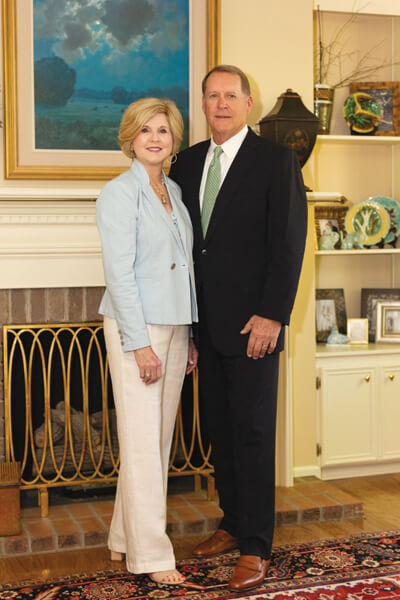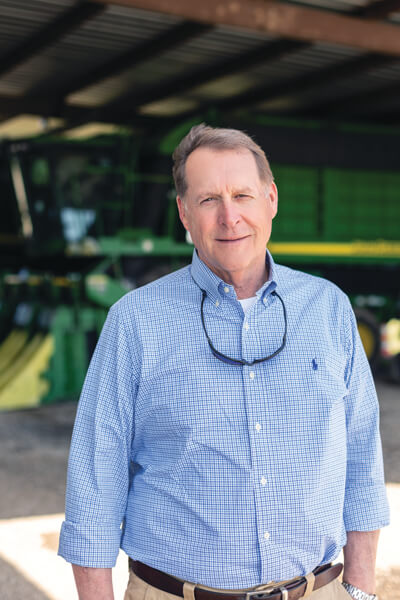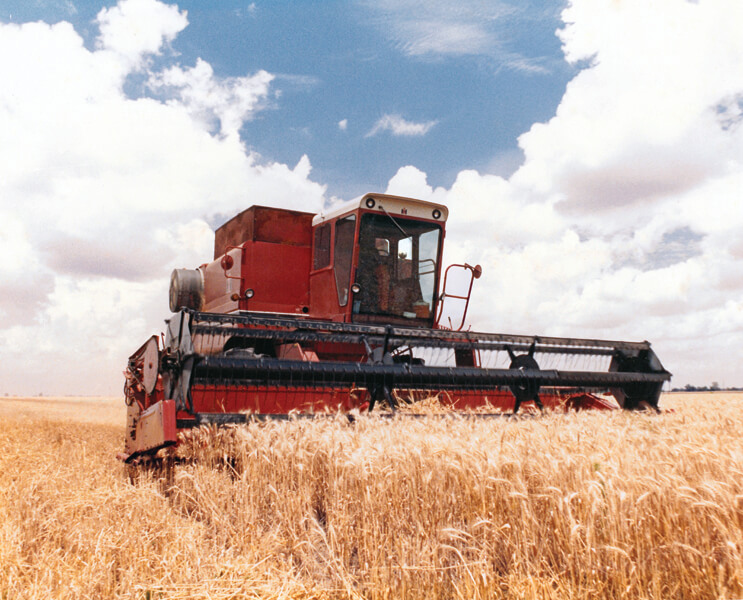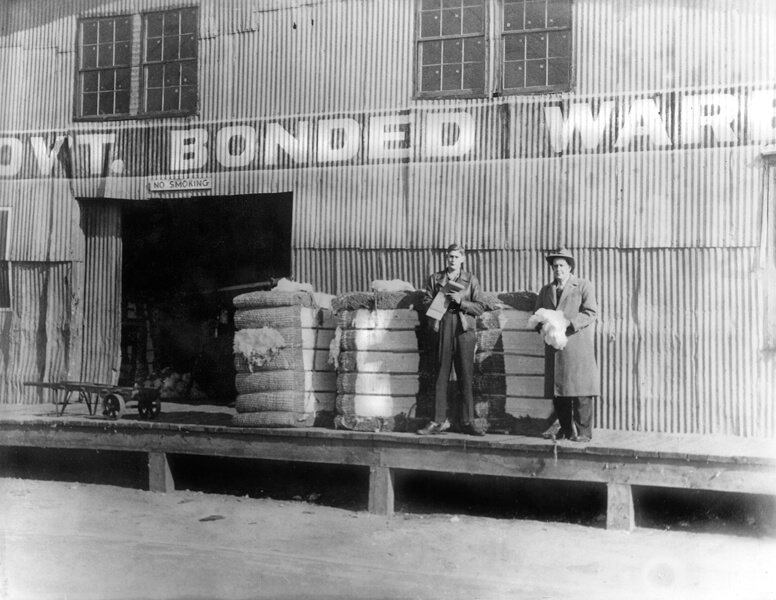By Becky Gillette
Paul Hollis of Rolling Fork, the new president of Delta Council, plans to focus on moving forward with long-delayed flood control projects in the Delta and working for the continued economic development of the entire Delta that those of us who live there love so much.
“As a board member of the Mississippi Levee Board and now president of Delta Council, flood control has always been a big concern of mine,” says Hollis. “This flood control is a vital part of the Delta infrastructure as so much of our area is dependent on agriculture and recreation. Flooding over the past years has had a detrimental effect on both. My hope is to finally see the completion of the Yazoo Backwater Project that was originally started 79 years ago. This project will finally give relief to citizens of the lower Delta that they desperately deserve, and has long been overdue.”
John Phillips, Phillips Farms, Yazoo City, a past president of Delta Council and president of Producer’s Flying Service, thinks Hollis is the ideal person to be president of Delta Council.
“And It is a really good time for Paul to serve as president because he is also a commissioner on the Levee Board,” says Phillips. “As you know, the past two years the South Delta has experienced back-to-back floods of historical proportion that have inflicted upwards of $2 billion in damages in the Yazoo Backwater Area. Paul is uniquely qualified to address the problem of flooding in the South Delta, which I feel is the biggest problem facing the entire Delta. As president of Delta Council, Paul will work to unite all the interests of the Delta into one voice that speaks clearly for the benefit of our region of the state.”
Andy Anderson, president and CEO of the Bank of Anguilla and chairman of the Mississippi Bankers Association, said a leader has to have both knowledge and wisdom. Either one alone will not suffice.
“Paul has both,” says Anderson. “Paul, through his years of farming, has learned much about the Mississippi Delta and the complexities associated with the Mississippi Delta economy. He is one of those gifted individuals who develops, retains, and uses wisdom gained through years of experience. I have witnessed this in my association and conversations with him.”
Anderson admires that Hollis cares about the Mississippi Delta, the towns and the citizens. And, Anderson has observed that Hollis is a tireless worker for whatever job or civic organization he is involved with.
“His work with the Levee Board during recent floods went well beyond the standard role,” says Anderson. “A leader must be willing to be vocal and express the views of the organization he or she is leading. However, a leader must be willing to listen more than he or she wants to be heard. Paul has always been an eager listener, which should serve him well as he leads Delta Council through the year.”
Hollis is considered friendly and approachable. Anderson said Hollis’ affable personality helps him to reach people and communicate with all audiences.
Hollis was born in Wichita Falls, Texas, where his physician father was stationed at the time at Sheppard Air Force Base. After leaving Wichita Falls, the family lived in Tuscaloosa, Ala., for about two and a half years before moving back to his father’s home town of Amory.
Amory is where Hollis spent the majority of his early childhood before leaving to attend The Baylor School in Chattanooga, Tenn. After graduating from that high school in 1975, he attended Mississippi State University where he earned a B.S. in arts and sciences.
Hollis credits his father with teaching him how to respect all people and treat them as you would want to be treated, knowing that you cannot do things in life without the help of others.
“He always respected the nurses who worked for him and was a big advocate for their advancement and rights in the medical community,” Hollis said.
After college he was offered a job to farm with Billy C. Fields, who at the time was his father-in-law. Hollis farmed with Fields for nine years and ran his cotton gin for ten years.
“As a son of a doctor from Northeast Mississippi, I was never exposed to farming,” says Hollis, who produces cotton, soybeans and corn. “However, when the opportunity was given to me by Mr. Fields, I decided to give it a try. I’ve always enjoyed the outdoors and have always had a great understanding of how the mechanics of the machinery is implemented.
“It was Billy C. Fields who taught me how to farm and, more importantly, learn the business side of farming. From the first day working for him he had me in the office, doing payroll and paying bills. For a young person new to farming, this was invaluable.”
Early on he came to love not only farming, but operating the cotton gin, as well. There is a saying that you either love a cotton gin or hate it.
“I loved it and would study the schematics of each piece of equipment until I understood exactly what its purpose was and how it functioned,” says Hollis.
In the fall of 1988, he was offered the opportunity to start farming on his own by William “Billy Mac” McKinney Jr. This began his career as owner-operator of Hollis Farms.
“Billy Mac was a very kind man and very well respected,” says Hollis. “As president of our local bank (Bank of Anguilla), he truly wanted our community to thrive and see the next generation continue on.”
Hollis remembers that when he was in his twenties, a sage farmer told him that successful farming is all about timing. Hollis has found that to be true. He finds planting season one of the most rewarding—and stressful—times of the year because it is so important to get crops in the ground at the right time. He also enjoys harvest time—being able to see success from their labors. But, harvest is also a hectic season that requires long hours of work.
Two things he likes most about the job are being outdoors, and working with other people to produce good crops.
Agriculture in the Delta and elsewhere in the U.S. has been difficult in the past several years. In addition to the usual challenges of weather and increasing production costs, the tariffs with China have resulted in less demand for major commodities and lower prices.
“With inputs constantly rising and commodity prices depressed, our profit margins are extremely thin,” says Hollis. “When I was younger, you could make a reasonably good crop and profit. Now you must make a good crop to hope for profit. Marketing plans and budgets are so important in this environment now.”
Hollis and his wife, Laura Boykin Hollis, have four adult daughters and six grandchildren, with another one expected in December.
“Laura has been a wonderful supporter and a big part of my success, not only in farming, but in life,” says Hollis.
Hollis enjoys things that are historical and travel. He combined those two interests to restore a 1962 Airstream.
“We, along with Laura’s sister, Mary, and her husband, Kevin Corban, who also own a vintage camper, a 1962 Streamline, have pulled these old campers from Idaho to Key West, as well as many other parts of this country,” says Hollis.
Hollis is a member of the Lower Delta Partnership Board of Directors, which provides education and advancement of the local area. Hollis is a member of and past president of the Anguilla Rotary Club, which now meets in Rolling Fork since the two clubs were combined. He is also past chairman and a current committee member of the Farm Service Agency, Sharkey County, and has served on the Sharkey-Issaquena Academy Board of Directors and the Sharkey County School Board. He is past Chairman of Trustees and a member of Rolling Fork United Methodist Church.





